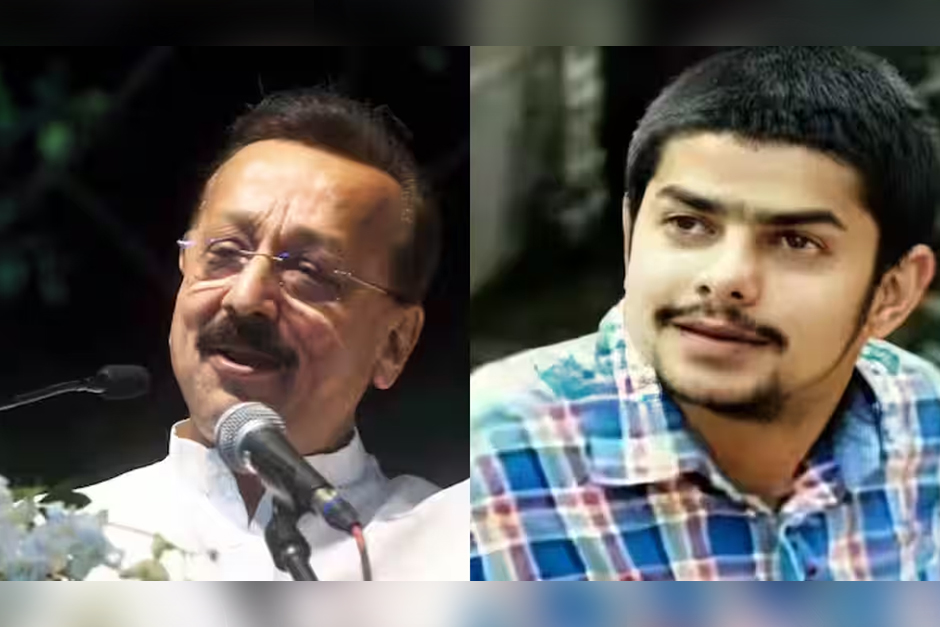In a significant triumph for Indian law enforcement, Anmol Bishnoi, a key accused in the high-profile murder of Punjabi singer and politician Shubhdeep Singh Sidhu, popularly known as Sidhu Moose Wala, has been successfully deported from the United States to India. This development marks a substantial victory in India’s ongoing battle against organized crime and international fugitives, bringing a crucial suspect closer to facing justice on Indian soil. While the initial reports linked him to the Baba Siddique case, it is important to clarify that Anmol Bishnoi is primarily wanted in connection with the Sidhu Moose Wala murder case. His repatriation underscores robust international cooperation and sends a clear message to those who seek to evade the law by fleeing abroad.
The Long Arm of Justice: Tracing Anmol Bishnoi
The journey to bring Anmol Bishnoi back to India has been a complex and arduous one, involving coordinated efforts from multiple Indian agencies. Anmol, nephew of notorious gangster Lawrence Bishnoi, fled India shortly after the brutal daylight murder of Sidhu Moose Wala in May 2022. He was believed to have been a crucial conspirator, allegedly involved in the planning and financing of the assassination, and coordinating with sharpshooters from abroad. His escape route involved using forged passports and navigating various countries, highlighting the sophisticated network at his disposal.
Indian investigative agencies, including the Punjab Police and the National Investigation Agency (NIA), launched an extensive international manhunt. Intelligence gathering, diplomatic channels, and cooperation with Interpol and law enforcement agencies in various countries, particularly the United States, were pivotal. Bishnoi’s presence was eventually confirmed in California, leading to sustained diplomatic and legal pressure from India for his apprehension and subsequent deportation. The process, while not a formal extradition, saw US authorities cooperate by identifying his illegal immigration status, facilitating his removal from the country and handing him over to Indian officials.
Anmol Bishnoi and the Sidhu Moose Wala Case
Anmol Bishnoi’s alleged involvement in the Sidhu Moose Wala murder case is central to the prosecution’s narrative. Investigators assert that he played a critical role in orchestrating the assassination, acting as a crucial link between the gang leadership and the ground operatives. The murder sent shockwaves across India and the Punjabi diaspora, shining a harsh light on the growing menace of organized crime and gang rivalries operating with apparent impunity.
The case has seen numerous arrests, with several alleged gang members and conspirators apprehended. However, the arrest and return of high-value targets like Anmol Bishnoi are essential for unraveling the full extent of the conspiracy, establishing the chain of command, and securing convictions against all involved. His questioning is expected to provide critical insights into the planning, financing, and logistical support behind the murder, potentially exposing more individuals involved in the intricate web of organized crime.
Implications for India’s Fight Against Organized Crime
The successful deportation of Anmol Bishnoi is more than just the return of a fugitive; it represents a significant psychological and operational victory for Indian law enforcement. It reinforces the message that geographical borders no longer guarantee immunity for criminals. This achievement will undoubtedly bolster the morale of investigative agencies and serve as a stern warning to other absconders hiding in foreign lands.
“This deportation is a testament to the persistent efforts of our agencies and the robust international cooperation we’ve fostered,” stated a senior Punjab Police official, speaking on condition of anonymity. “It sends a clear message: India will pursue justice relentlessly, no matter where criminals seek refuge. This strengthens our hand significantly in dismantling the network of cross-border organized crime.”
Furthermore, this development sets a precedent, demonstrating India’s growing capability and diplomatic leverage in bringing fugitives to justice. It underscores the importance of intelligence sharing and mutual legal assistance treaties with international partners. As Anmol Bishnoi now faces the full force of Indian law, his interrogation and subsequent trial are expected to shed light on the broader operations of the Lawrence Bishnoi gang and its international connections, bringing closure and justice to the family of Sidhu Moose Wala and countless others affected by organized crime.
The focus now shifts to the legal proceedings, where investigators will aim to build an unassailable case against Anmol Bishnoi and ensure that justice is served. This significant win marks a pivotal moment in India’s determined campaign to curb the influence of criminal syndicates and uphold the rule of law.




